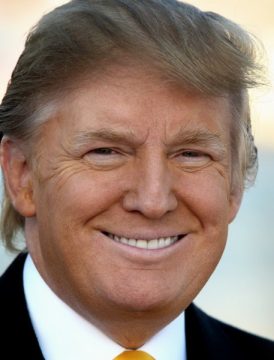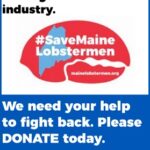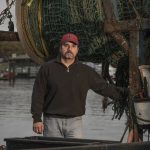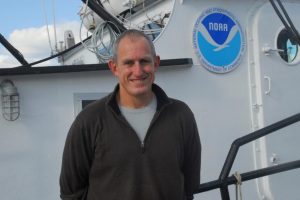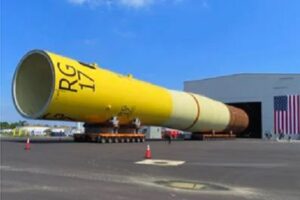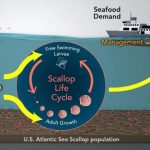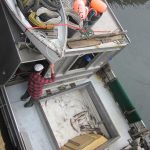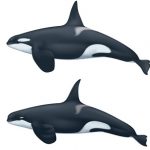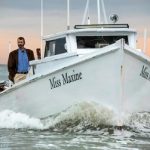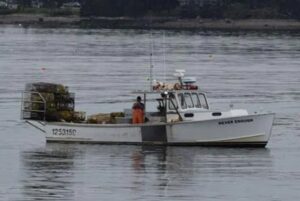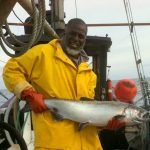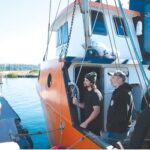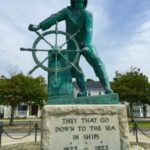Category Archives: Western Pacific
Silver Bay Seafoods recruits in American Somoa for Alaska Fish Processing Jobs
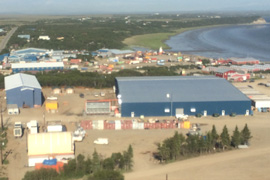 The demand for jobs was evident Saturday when about 300 people responded to a company from Alaska’s call for workers. Silver Bay Seafoods is looking to hire 250 employees for the salmon season which runs from June to September. Two officials of the company including Shannon Grant, the Hiring Manager, explained the types of jobs that were on offer, the work schedule and the pay. Many of those who turned up Saturday said they wanted to give it a try and were attracted by the $10-$12 per hour wage, and working in Alaska. Hiring Manager Shannon Grant was quite pleased with the response. Link 16:01
The demand for jobs was evident Saturday when about 300 people responded to a company from Alaska’s call for workers. Silver Bay Seafoods is looking to hire 250 employees for the salmon season which runs from June to September. Two officials of the company including Shannon Grant, the Hiring Manager, explained the types of jobs that were on offer, the work schedule and the pay. Many of those who turned up Saturday said they wanted to give it a try and were attracted by the $10-$12 per hour wage, and working in Alaska. Hiring Manager Shannon Grant was quite pleased with the response. Link 16:01
How False killer whale’s remove bait from longline fishing gear captured on video for first time
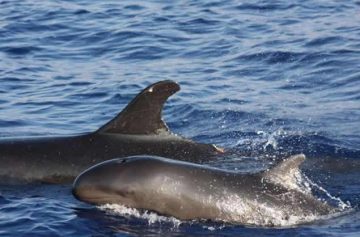 How Hawaiian false killer whales remove fish from longline fishing gear has for the first time been observed by a team of researchers and fishermen. The team, coordinated by Scripps Institution of Oceanography at the University of California San Diego scientist Aaron Thode, used video and audio recordings to observe false killer whales removing fish from a longline fishing hook, a behavior known as depredation. They gained new insight into a behavior that has caused false killer whales to entangle with fishing gear at rates deemed unsustainable by the U.S. National Marine Fisheries Service. To observe false killer whales removing fish from hooks, the Alaskan and Hawaiian research team deployed an underwater camera, sound recorder, and vibration detector on long-line fishing gear deployed by fishing vessels off Hawaii. Read the article here 16:40
How Hawaiian false killer whales remove fish from longline fishing gear has for the first time been observed by a team of researchers and fishermen. The team, coordinated by Scripps Institution of Oceanography at the University of California San Diego scientist Aaron Thode, used video and audio recordings to observe false killer whales removing fish from a longline fishing hook, a behavior known as depredation. They gained new insight into a behavior that has caused false killer whales to entangle with fishing gear at rates deemed unsustainable by the U.S. National Marine Fisheries Service. To observe false killer whales removing fish from hooks, the Alaskan and Hawaiian research team deployed an underwater camera, sound recorder, and vibration detector on long-line fishing gear deployed by fishing vessels off Hawaii. Read the article here 16:40
Western Pacific territories will have a voice in President-elect Donald Trump’s transition.
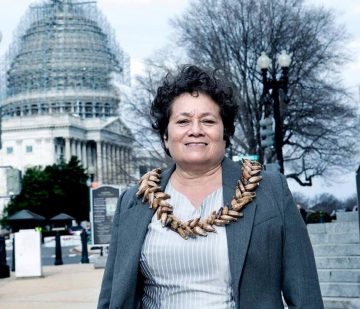 Vice President-elect Mike Pence met after the election with Congresswoman Aumua Amata Radewagen—the only Republican delegate to Congress. It was there, that Radewagen’s expertise on island issues and possible role as an adviser to the transition team became clear. Reports of that role began surfacing last week, but it wasn’t until the middle of the weekend, here, that Radewagen issued a statement. Radewagen says she and the Vice President-elect discussed an advisory role, and she later spoke with the transition committee’s vice-chair, Tennessee Congresswoman Marsha Blackburn. American Samoa’s freshman Congresswoman made clear at the Pence meeting, that President-elect Trump needs to rescind some of President Obama’s executive orders, including creation of the Pacific Remote Islands Marine National Monument… audio, read the rest here 13:22
Vice President-elect Mike Pence met after the election with Congresswoman Aumua Amata Radewagen—the only Republican delegate to Congress. It was there, that Radewagen’s expertise on island issues and possible role as an adviser to the transition team became clear. Reports of that role began surfacing last week, but it wasn’t until the middle of the weekend, here, that Radewagen issued a statement. Radewagen says she and the Vice President-elect discussed an advisory role, and she later spoke with the transition committee’s vice-chair, Tennessee Congresswoman Marsha Blackburn. American Samoa’s freshman Congresswoman made clear at the Pence meeting, that President-elect Trump needs to rescind some of President Obama’s executive orders, including creation of the Pacific Remote Islands Marine National Monument… audio, read the rest here 13:22
Congressmen Seek Investigation Of Hawaii Fishing Practices
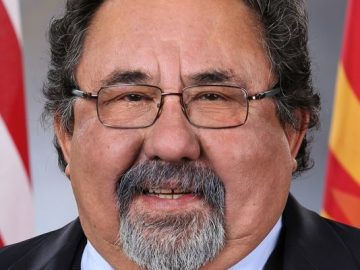 Four Democratic congressmen have written to officials at the U.S. Coast Guard and the National Oceanic and Atmospheric Administration claiming that Hawaii’s longline fishing fleet is operating illegally by employing — and in some cases possibly abusing — foreign fishermen. The congressmen said fishing boat owners who are not in “compliance with the law” should not be allowed to sell their products. Arizona Rep. Raul Grijalva’s staff convened a forum about the matter on Capitol Hill last week. Activists at the event, who described what was happening as modern-day slavery, advocated a boycott of tuna until the alleged abuses stop. “This illegal activity does not represent American values and has dealt a blow to U.S. credibility as a global leader in fighting (illegal, unreported and unregulated) fishing and human trafficking,” the congressmen wrote. WHERE IS THE PROOF! Read the rest here 10:41
Four Democratic congressmen have written to officials at the U.S. Coast Guard and the National Oceanic and Atmospheric Administration claiming that Hawaii’s longline fishing fleet is operating illegally by employing — and in some cases possibly abusing — foreign fishermen. The congressmen said fishing boat owners who are not in “compliance with the law” should not be allowed to sell their products. Arizona Rep. Raul Grijalva’s staff convened a forum about the matter on Capitol Hill last week. Activists at the event, who described what was happening as modern-day slavery, advocated a boycott of tuna until the alleged abuses stop. “This illegal activity does not represent American values and has dealt a blow to U.S. credibility as a global leader in fighting (illegal, unreported and unregulated) fishing and human trafficking,” the congressmen wrote. WHERE IS THE PROOF! Read the rest here 10:41
Wespac Still Pushing Obama To Lift Marine Monument’s Fishing Ban
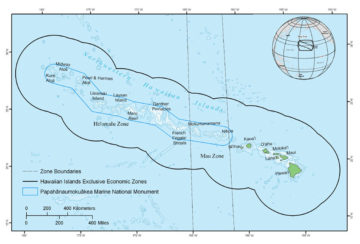 With President Barack Obama set to arrive Friday for vacation on Oahu, the Western Pacific Regional Fishery Management Council is making another push for his administration to ease the anticipated impacts of the newly expanded on Hawaii’s $100 million commercial fishing industry. Wespac Executive Director Kitty Simonds and Chair Ed Ebisui Jr. have asked the president to delay implementation of the commercial fishing prohibition for five years, pointing out how there’s a precedent for phasing in such bans. Using his executive authority under the Antiquities Act, Obama signed a proclamation in August to quadruple the size of Papahanaumokuakea around the Northwestern Hawaiian Islands. The commercial fishing ban took effect immediately. Read the rest here 13:07
With President Barack Obama set to arrive Friday for vacation on Oahu, the Western Pacific Regional Fishery Management Council is making another push for his administration to ease the anticipated impacts of the newly expanded on Hawaii’s $100 million commercial fishing industry. Wespac Executive Director Kitty Simonds and Chair Ed Ebisui Jr. have asked the president to delay implementation of the commercial fishing prohibition for five years, pointing out how there’s a precedent for phasing in such bans. Using his executive authority under the Antiquities Act, Obama signed a proclamation in August to quadruple the size of Papahanaumokuakea around the Northwestern Hawaiian Islands. The commercial fishing ban took effect immediately. Read the rest here 13:07
Fishery Council Sends Letters to Obama on Impacts of Marine National Monuments
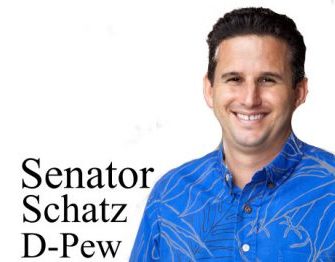 The Western Pacific Regional Fishery Management Council is hopeful that when President Obama arrives in Honolulu tomorrow, he will acknowledge the $100 million commercial fishing industry in Hawai‘i and the impacts on that fishery by his expansions of the Papahanaumokuakea Marine National Monument (MNM) in the Northwestern Hawaiian Islands (NWHI) and the Pacific Remote Islands MNM, which includes nearby Johnston Atoll. The value of the Hawaii longline fishery is excess of $300 million when factoring in retail markets and support industries and their employees. “The push for the monuments was driven not by popular demand but by a Washington, DC-based environmental organization, the Pew Environment Group, which has had the ear of successive presidents,” explains Council Chair Edwin Ebisui Jr. Now there is talk about overlaying the monument status with a National Marine Sanctuary designation.” Read the WPFMC press release here 09:41
The Western Pacific Regional Fishery Management Council is hopeful that when President Obama arrives in Honolulu tomorrow, he will acknowledge the $100 million commercial fishing industry in Hawai‘i and the impacts on that fishery by his expansions of the Papahanaumokuakea Marine National Monument (MNM) in the Northwestern Hawaiian Islands (NWHI) and the Pacific Remote Islands MNM, which includes nearby Johnston Atoll. The value of the Hawaii longline fishery is excess of $300 million when factoring in retail markets and support industries and their employees. “The push for the monuments was driven not by popular demand but by a Washington, DC-based environmental organization, the Pew Environment Group, which has had the ear of successive presidents,” explains Council Chair Edwin Ebisui Jr. Now there is talk about overlaying the monument status with a National Marine Sanctuary designation.” Read the WPFMC press release here 09:41
US Signs South Pacific Tuna Treaty Amendments
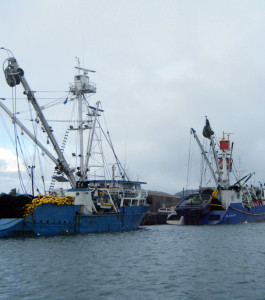 The United States and 16 Pacific Island governments initialed amendments to the Multilateral Treaty on Fisheries at a ceremony in Nadi, Fiji on December 3, 2016. According to the US State Department, the revisions to the Treaty will generate higher economic returns from fisheries for Pacific Island countries, while supporting the continued viable operation of the US fishing fleet in the region. “The positive outcome reflects strong commitments to the Treaty by the parties and relevant stakeholders, including the Pacific Islands Forum Fisheries Agency (FFA) and the US fishing industry, and a further enhancement of political and economic ties between the United States and the Pacific Island region,” the US State Department said in a press statement. Read the rest here 09:07
The United States and 16 Pacific Island governments initialed amendments to the Multilateral Treaty on Fisheries at a ceremony in Nadi, Fiji on December 3, 2016. According to the US State Department, the revisions to the Treaty will generate higher economic returns from fisheries for Pacific Island countries, while supporting the continued viable operation of the US fishing fleet in the region. “The positive outcome reflects strong commitments to the Treaty by the parties and relevant stakeholders, including the Pacific Islands Forum Fisheries Agency (FFA) and the US fishing industry, and a further enhancement of political and economic ties between the United States and the Pacific Island region,” the US State Department said in a press statement. Read the rest here 09:07
Coast Guard conducts medevac from fishing vessel off Oahu
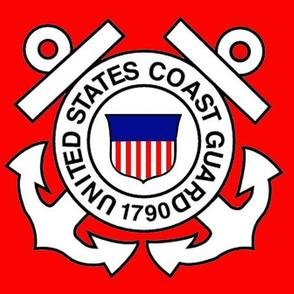 The Coast Guard medevaced the master of the 70-foot fishing vessel Lady J3 about 41 miles north of Oahu Saturday morning. An MH-65 Dolphin helicopter crew from Air Station Barbers Point safely medevaced the 36-year-old man to Queens Medical Center in Honolulu for treatment. He was reportedly suffering from swelling to his lower extremities and was unable to stand. Coast Guard watchstanders at Joint Rescue Communications Center Honolulu received a request for the medevac from the NOAA Fisheries observer aboard the Lady J3 mid-morning Friday. The vessel was 176 miles north of Kauai at the time, heading toward Oahu and maintained a six-hour communications schedule with Coast Guard Sector Honolulu watchstanders. By the evening the master’s condition had deteriorated and he was having trouble breathing. At the recommendation of the Coast Guard flight surgeon the vessel continued to make best course and speed toward Oahu to close the distance and bring them into range of the Coast Guard Dolphin crew. The medevac was conducted at first light to bring the master to a higher level of medical care. Weather conditions at the time of the hoist were reportedly 12 mph winds with seas to 7 feet, haze and showers. link 09:26
The Coast Guard medevaced the master of the 70-foot fishing vessel Lady J3 about 41 miles north of Oahu Saturday morning. An MH-65 Dolphin helicopter crew from Air Station Barbers Point safely medevaced the 36-year-old man to Queens Medical Center in Honolulu for treatment. He was reportedly suffering from swelling to his lower extremities and was unable to stand. Coast Guard watchstanders at Joint Rescue Communications Center Honolulu received a request for the medevac from the NOAA Fisheries observer aboard the Lady J3 mid-morning Friday. The vessel was 176 miles north of Kauai at the time, heading toward Oahu and maintained a six-hour communications schedule with Coast Guard Sector Honolulu watchstanders. By the evening the master’s condition had deteriorated and he was having trouble breathing. At the recommendation of the Coast Guard flight surgeon the vessel continued to make best course and speed toward Oahu to close the distance and bring them into range of the Coast Guard Dolphin crew. The medevac was conducted at first light to bring the master to a higher level of medical care. Weather conditions at the time of the hoist were reportedly 12 mph winds with seas to 7 feet, haze and showers. link 09:26
US tuna boats seek level playing field
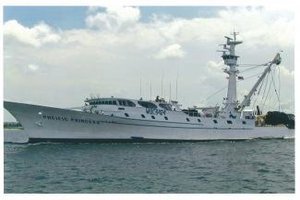 Going into next week’s meeting of the organization called the Western and Central Pacific fisheries Commission, aka Tuna Commission, the body which regulates the fishing of tuna in the Pacific Ocean, US tuna boats are hoping for better outcomes than what has been achieved in the best. The meeting takes place December 5-9 in Nadi, Fiji and American Samoa is sending several representatives. While much focus has been on the canneries and helping them stay competitive and keep them here, the tuna boats that deliver the fish which are processed and canned at the Starkist and Samoa Tuna Processors plants, have not received much attention. Regulations initiated by the Tuna Commission and the United States in recent years have hit the US tuna boats hard and subsequently affected the supply of fish for the local canneries. Read the story here 12:02
Going into next week’s meeting of the organization called the Western and Central Pacific fisheries Commission, aka Tuna Commission, the body which regulates the fishing of tuna in the Pacific Ocean, US tuna boats are hoping for better outcomes than what has been achieved in the best. The meeting takes place December 5-9 in Nadi, Fiji and American Samoa is sending several representatives. While much focus has been on the canneries and helping them stay competitive and keep them here, the tuna boats that deliver the fish which are processed and canned at the Starkist and Samoa Tuna Processors plants, have not received much attention. Regulations initiated by the Tuna Commission and the United States in recent years have hit the US tuna boats hard and subsequently affected the supply of fish for the local canneries. Read the story here 12:02
Pew: Pacific Bluefin Tuna Management Proposal Will Not End Overfishing
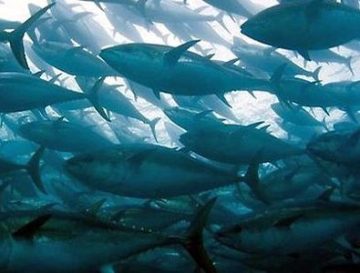 The Pacific bluefin tuna has been overfished for decades and has seen population declines of 97 percent, but a management proposal to be considered by the Western and Central Pacific Fisheries Commission (WCPFC) would not improve the status quo and must be rejected by member governments, according to The Pew Charitable Trusts. The WCPFC, which oversees the tuna fisheries of the western Pacific Ocean, meets here Dec. 5-9 to discuss management measures for Pacific bluefin. Management of the stock has long been directed by the Northern Committee, a WCPFC subcommittee; in past years, the committee’s recommendations have been approved by the full Commission with little review or discussion, much to the detriment of Pacific bluefin. (according to the Pew Charitable Trust). Amanda Nickson, who directs Pew’s global tuna conservation campaign, issued the following statement on why the WCPFC should reject its current proposal: Read the rest here 12:03
The Pacific bluefin tuna has been overfished for decades and has seen population declines of 97 percent, but a management proposal to be considered by the Western and Central Pacific Fisheries Commission (WCPFC) would not improve the status quo and must be rejected by member governments, according to The Pew Charitable Trusts. The WCPFC, which oversees the tuna fisheries of the western Pacific Ocean, meets here Dec. 5-9 to discuss management measures for Pacific bluefin. Management of the stock has long been directed by the Northern Committee, a WCPFC subcommittee; in past years, the committee’s recommendations have been approved by the full Commission with little review or discussion, much to the detriment of Pacific bluefin. (according to the Pew Charitable Trust). Amanda Nickson, who directs Pew’s global tuna conservation campaign, issued the following statement on why the WCPFC should reject its current proposal: Read the rest here 12:03
Will Trump Be Able To Undo Papahanaumokuakea, Northeast Canyons and Seamounts Marine National Monuments?
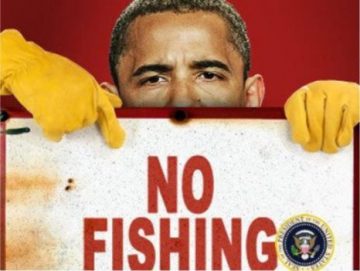 In the months leading up to the Nov. 8 election, President Barack Obama signed a series of proclamations to dramatically increase the amount of land and water that is federally protected from commercial fishing, mining, drilling and development. On Aug. 24, he established a nearly 90,000-acre national monument in the Katahdin Woods of Maine. Two days later, Obama expanded Papahanaumokuakea Marine National Monument around the Northwestern Hawaiian Islands by 283 million acres, making it the world’s largest protected area at the time. And on Sept. 15, he created the first national monument in the Atlantic Ocean, protecting more than 3 million acres of marine ecosystems, seamounts and underwater canyons southeast of Cape Cod, Massachusetts. It’s mostly speculation at this point as to what Trump will do but groups on both sides of the issue are keeping a watchful eye on things. Advocates for commercial fishing interests on the East Coast have started nudging policymakers to consider what changes the next administration could make. But West Coast and Hawaii industry groups are still gathering information and developing plans. Read the rest here 08:47
In the months leading up to the Nov. 8 election, President Barack Obama signed a series of proclamations to dramatically increase the amount of land and water that is federally protected from commercial fishing, mining, drilling and development. On Aug. 24, he established a nearly 90,000-acre national monument in the Katahdin Woods of Maine. Two days later, Obama expanded Papahanaumokuakea Marine National Monument around the Northwestern Hawaiian Islands by 283 million acres, making it the world’s largest protected area at the time. And on Sept. 15, he created the first national monument in the Atlantic Ocean, protecting more than 3 million acres of marine ecosystems, seamounts and underwater canyons southeast of Cape Cod, Massachusetts. It’s mostly speculation at this point as to what Trump will do but groups on both sides of the issue are keeping a watchful eye on things. Advocates for commercial fishing interests on the East Coast have started nudging policymakers to consider what changes the next administration could make. But West Coast and Hawaii industry groups are still gathering information and developing plans. Read the rest here 08:47
American Samoa push to remove marine reserves
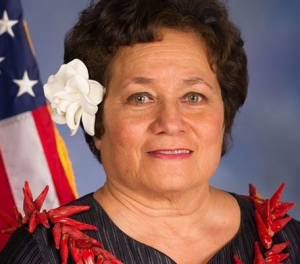 American Samoa’s US Congresswoman, Aumua Amata Radewagen, is pushing for the incoming US Government to overturn President Obama’s decision to create marine monuments in the Pacific. The Remote Islands Monuments comprise the largest marine protected area in the world and encompass commercial fishing areas that American Samoa’s fishing industry regard as vital for its survival. Auma met with Vice President-elect Mike Pence on Thursday. She said she made clear the need for President-elect Donald Trump to rescind President Obama’s executive orders creating and expanding the marine reserves. “So these repeals will be a huge win for us in American Samoa and our fishing community. And I know that the Governor and I are united to reverse these misguided designations.” Link 11:31
American Samoa’s US Congresswoman, Aumua Amata Radewagen, is pushing for the incoming US Government to overturn President Obama’s decision to create marine monuments in the Pacific. The Remote Islands Monuments comprise the largest marine protected area in the world and encompass commercial fishing areas that American Samoa’s fishing industry regard as vital for its survival. Auma met with Vice President-elect Mike Pence on Thursday. She said she made clear the need for President-elect Donald Trump to rescind President Obama’s executive orders creating and expanding the marine reserves. “So these repeals will be a huge win for us in American Samoa and our fishing community. And I know that the Governor and I are united to reverse these misguided designations.” Link 11:31
Coast Guard conducts boardings, returns vessels to port for safety violations in Hawaii
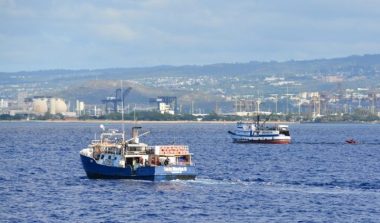 The crew of the USCGC Galveston Island (WPB-1349) terminated the voyages of the commercial fishing vessels Azure, Capt. Millions III and Capt. Danny for hazardous safety conditions during boardings off Honolulu Harbor in early November. Of the 10 total boardings, the crew terminated the voyages of three fishing vessels and issued 39 notices of violation, including two fisheries violations, two potential marine pollution violations and 35 safety violations. Partnering with the Galveston Island during the boardings were two U.S. Fish and Wildlife Service special agents bringing their expansive knowledge and fisheries expertise. Of the three fishing vessels whose voyages were terminated by the Galveston Island crew, the boarding team found multiple discrepancies, including excessive volatile fuel, multiple five-gallon buckets of oily water, oily water in the bilge, lack of a sound-producing device, lack of a record log book for training and drills as well as inoperable bilge and general alarms. In one case, a non-U.S. citizen was found to be serving as master of a U.S. documented vessel. Read the rest here 20:33
The crew of the USCGC Galveston Island (WPB-1349) terminated the voyages of the commercial fishing vessels Azure, Capt. Millions III and Capt. Danny for hazardous safety conditions during boardings off Honolulu Harbor in early November. Of the 10 total boardings, the crew terminated the voyages of three fishing vessels and issued 39 notices of violation, including two fisheries violations, two potential marine pollution violations and 35 safety violations. Partnering with the Galveston Island during the boardings were two U.S. Fish and Wildlife Service special agents bringing their expansive knowledge and fisheries expertise. Of the three fishing vessels whose voyages were terminated by the Galveston Island crew, the boarding team found multiple discrepancies, including excessive volatile fuel, multiple five-gallon buckets of oily water, oily water in the bilge, lack of a sound-producing device, lack of a record log book for training and drills as well as inoperable bilge and general alarms. In one case, a non-U.S. citizen was found to be serving as master of a U.S. documented vessel. Read the rest here 20:33
Bill Would Give Temporary Work Visas to Foreign Fishermen
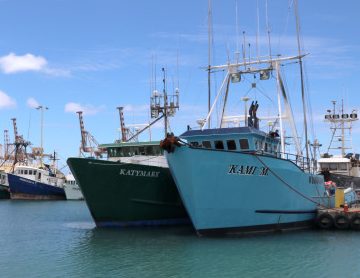 U.S. Sen. Mazie Hirono plans to introduce a bill in Congress to protect foreign fishermen from exploitation. The bill would give fishermen temporary work visas to ensure wage protections and safe working conditions. Hirono said in a statement Monday that the legislation aims to protect the fishermen while preserving the longline industry. She says the visas would allow foreign fishermen to leave their vessels while docked in Honolulu. The proposal follows an Associated Press investigation that found some fishermen have been confined to vessels for years. A federal loophole allows the foreign men to work, but it exempts them from most basic labor protections. Hirono says she’s also working with federal agencies to find solutions that don’t involve legislation. link 20:13
U.S. Sen. Mazie Hirono plans to introduce a bill in Congress to protect foreign fishermen from exploitation. The bill would give fishermen temporary work visas to ensure wage protections and safe working conditions. Hirono said in a statement Monday that the legislation aims to protect the fishermen while preserving the longline industry. She says the visas would allow foreign fishermen to leave their vessels while docked in Honolulu. The proposal follows an Associated Press investigation that found some fishermen have been confined to vessels for years. A federal loophole allows the foreign men to work, but it exempts them from most basic labor protections. Hirono says she’s also working with federal agencies to find solutions that don’t involve legislation. link 20:13
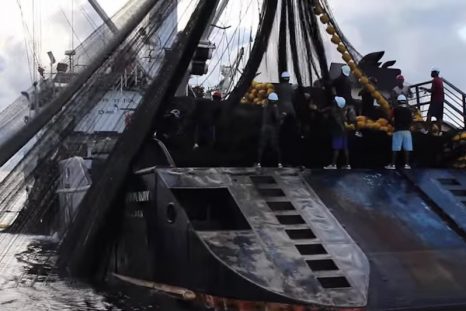
Successful PNA vessel days scheme
Five years ago managing the PNA fisheries was mostly done with a calculator and pencil, and with data sent by fax or email. Today, the fishery that is generating US$400 million a year to nine Pacific islands is managed by the Parties to the Nauru Agreement’s Fisheries Information Management System (FIMS) that allows managers to know what is taking place in their fishing zone with a tap of their computer keyboards. ‘It provides easy access to fisheries information for increasingly effective management of PNA’s Vessel Day Scheme (VDS) that governs purse seine fishing in the western and central Pacific,’ said PNA CEO Ludwig Kumoru, who added that the VDS and the FIMS management tool is also being rolled out for the longline industry. ‘FIMS shows each party’s usage of fishing days and the percentage of days left,’ said Ms. Jack. The PNA Office coordinates this fishing day data with each fishery department in the nine islands using the VDS, including resolving any differences between the national fishery department and the PNA Office in determining fishing day usage. Day-to-day VDS management of fishing day data translates directly into major revenue for each VDS participant. Between 2010 and 2015, revenue to the islands rose from US$60 million to close to US$400 million. Watch the video,Read the story here 11:07
Tuna Vessel Operator Convicted for Oil Discharges Off American Samoa
 An American tuna fishing company that regularly unloaded its catch in American Samoa, was convicted and sentenced today for discharging oil into the South Pacific and for maintaining false records, announced Assistant Attorney General John C. Cruden of the Department of Justice’s Environment and Natural Resources Division and U.S. Attorney Channing D. Phillips for the District of Columbia. The company, Pacific Breeze Fisheries LLC, owned the Fishing Vessel F/V Pacific Breeze, a tuna purse seiner that was responsible for the pollution. Pacific Breeze Fisheries admitted that its engineers failed to document the illegal dumping of oily bilge water into the waters off American Samoa without the use of required pollution prevention equipment. These discharges occurred on at least two occasions, in 2014 and 2015, before the vessel brought fish to a cannery in the port of Pago Pago, American Samoa. Read the rest here 14:11
An American tuna fishing company that regularly unloaded its catch in American Samoa, was convicted and sentenced today for discharging oil into the South Pacific and for maintaining false records, announced Assistant Attorney General John C. Cruden of the Department of Justice’s Environment and Natural Resources Division and U.S. Attorney Channing D. Phillips for the District of Columbia. The company, Pacific Breeze Fisheries LLC, owned the Fishing Vessel F/V Pacific Breeze, a tuna purse seiner that was responsible for the pollution. Pacific Breeze Fisheries admitted that its engineers failed to document the illegal dumping of oily bilge water into the waters off American Samoa without the use of required pollution prevention equipment. These discharges occurred on at least two occasions, in 2014 and 2015, before the vessel brought fish to a cannery in the port of Pago Pago, American Samoa. Read the rest here 14:11
National Marine Fisheries Service issues annual report on Fisheries of the United States, 2015
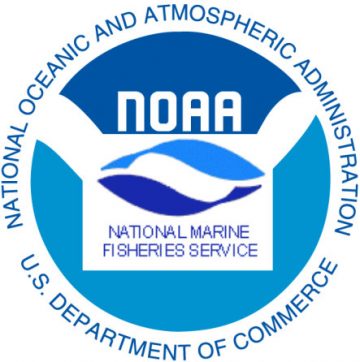 This publication is the annual National Marine Fisheries Service (NMFS) yearbook of fishery statistics for the United States for 2015. The report provides data on U.S. recreational catch and commercial fisheries landings and value as well as other aspects of U.S. commercial fishing. In addition, data are reported on the U.S. fishery processing industry, imports and exports of fishery-related products, and domestic supply and per capita consumption of fishery products. Information in this report came from many sources. Field offices of NMFS, with the generous cooperation of the coastal states and Regional Fishery Information Networks, collected and compiled data on U.S. commercial landings and processed fishery products. The NMFS Fisheries Statistics Division in Silver Spring, MD, managed the collection and compilation of recreational statistics, in cooperation with various States and Interstate Fisheries Commissions, and tabulated and prepared all data for publication. Sources of other data appearing in this publication are: U.S. Census Bureau, U.S. Bureau of Labor Statistics, U.S. Department of the Interior, U.S. Department of Agriculture, and the Food and Agriculture Organization (FAO) of the United Nations. Read the press release here, Read the full report here 09:34
This publication is the annual National Marine Fisheries Service (NMFS) yearbook of fishery statistics for the United States for 2015. The report provides data on U.S. recreational catch and commercial fisheries landings and value as well as other aspects of U.S. commercial fishing. In addition, data are reported on the U.S. fishery processing industry, imports and exports of fishery-related products, and domestic supply and per capita consumption of fishery products. Information in this report came from many sources. Field offices of NMFS, with the generous cooperation of the coastal states and Regional Fishery Information Networks, collected and compiled data on U.S. commercial landings and processed fishery products. The NMFS Fisheries Statistics Division in Silver Spring, MD, managed the collection and compilation of recreational statistics, in cooperation with various States and Interstate Fisheries Commissions, and tabulated and prepared all data for publication. Sources of other data appearing in this publication are: U.S. Census Bureau, U.S. Bureau of Labor Statistics, U.S. Department of the Interior, U.S. Department of Agriculture, and the Food and Agriculture Organization (FAO) of the United Nations. Read the press release here, Read the full report here 09:34
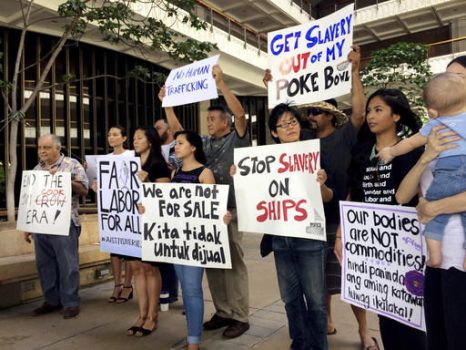
Officials say they cannot enforce Hawaii fishing contracts
Federal officials cannot enforce a contract being proposed by the commercial fishing industry as a solution to concerns about foreign fishing crews in Hawaii, leaving the industry responsible for enforcing its own rules. Federal and state officials met with vessel owners, captains and representatives from the fleet Thursday at a pier in Honolulu. The normally private quarterly meeting was opened to media and lawmakers to discuss conditions uncovered in an Associated Press investigation that found some foreign fishermen had been confined to vessels for years. On Wednesday, Hawaii state Rep. Kaniela Ing held a public meeting at the state Capitol on the issue. Ing and other lawmakers pressed representatives from the fishing industry and government agencies about what can be done to increase oversight and improve conditions in the industry. Read the story here 09:31
American Somoa misses out on quota transfer fisheries revenues
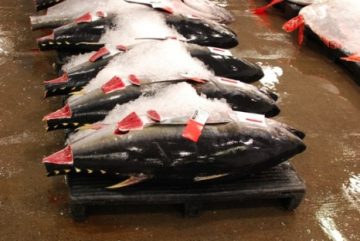 Statements by the governor’s fisheries advisor at the meeting of the Western Pacific Fishery Management Council last week indicate that the territory missed out on an opportunity to earn money from allowing Hawaii to use our quota of big eye tuna catch. During the public comment session which followed a report on American Samoa’s fisheries activities at the Council meeting in Honolulu, Governor Lolo’s adviser on fisheries, Vaamua Henry Sesepasara, spoke up about the big eye quota transfer. This allows Hawaii longliners to buy unused quota limits for big eye catch of the territories of Guam, Northern Marianas and American Samoa. Vaamua said that the Lolo administration was not aware of the big eye quota transfer which was first carried out in 2011 and 2012 under the Togiola administration. Read the story here 14:12
Statements by the governor’s fisheries advisor at the meeting of the Western Pacific Fishery Management Council last week indicate that the territory missed out on an opportunity to earn money from allowing Hawaii to use our quota of big eye tuna catch. During the public comment session which followed a report on American Samoa’s fisheries activities at the Council meeting in Honolulu, Governor Lolo’s adviser on fisheries, Vaamua Henry Sesepasara, spoke up about the big eye quota transfer. This allows Hawaii longliners to buy unused quota limits for big eye catch of the territories of Guam, Northern Marianas and American Samoa. Vaamua said that the Lolo administration was not aware of the big eye quota transfer which was first carried out in 2011 and 2012 under the Togiola administration. Read the story here 14:12
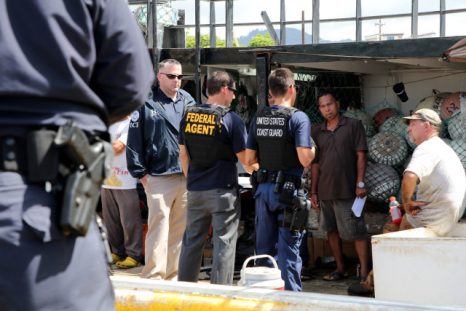
U.S. Customs and Border Protection: Foreign Fishermen Have No Complaints Working On US longline vessels
Federal officials said Thursday they have interviewed dozens of foreign crew members who work on U.S. commercial fishing boats since allegations of labor abuses surfaced, but haven’t found much beyond a few cockroaches. “They had an opportunity to talk to us freely,” said Ferdie Jose, supervisory officer for the U.S. Customs and Border Protection. “They didn’t voice any complaints.” Jose made the statement at what has traditionally been a private quarterly meeting among commercial fishing vessel owners, law enforcement officers and state and federal officials. It was a marked contrast to one held just a day earlier at the state Capitol, where legislators grilled state officials and fishing industry leaders for nearly three hours in an effort to find ways to improve the working conditions for foreign crew members. Read the story here 09:02
Hawaii lawmakers hold public meeting on foreign fishermen
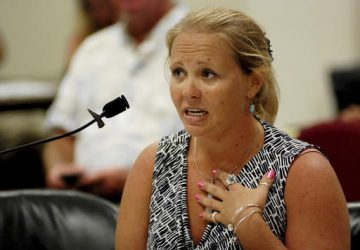 A woman who worked as an observer on fishing boats that docked in Honolulu described for Hawaii lawmakers what it was like without toilets, showers or hot water. “You have a cold water deck hose as a shower…the water tastes like iron,” said Ashley Watts, a former observer for the National Oceanic and Atmospheric Administration. Watts’ comments to lawmakers at the state Capitol Wednesday followed an Associated Press investigation that found some fishermen have been confined to vessels for years. A federal loophole allows the foreign men to work but exempts them from most basic labor protections. Many foreign fishermen have to stay on the boats because they are not legally allowed to enter the United States. Before the meeting, a group of Hawaii residents and activists rallied outside the state Capitol to call for better conditions for fishermen, demanding an end to what they call unacceptable living and working conditions. Read the story here 13:25
A woman who worked as an observer on fishing boats that docked in Honolulu described for Hawaii lawmakers what it was like without toilets, showers or hot water. “You have a cold water deck hose as a shower…the water tastes like iron,” said Ashley Watts, a former observer for the National Oceanic and Atmospheric Administration. Watts’ comments to lawmakers at the state Capitol Wednesday followed an Associated Press investigation that found some fishermen have been confined to vessels for years. A federal loophole allows the foreign men to work but exempts them from most basic labor protections. Many foreign fishermen have to stay on the boats because they are not legally allowed to enter the United States. Before the meeting, a group of Hawaii residents and activists rallied outside the state Capitol to call for better conditions for fishermen, demanding an end to what they call unacceptable living and working conditions. Read the story here 13:25
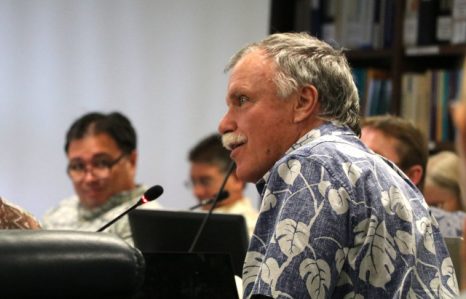
Fight Over Papahanaumokuakea Expansion Isn’t Over
Hawaii’s commercial fishing industry leaders are not finished fighting the fourfold expansion of a U.S. marine monument in the Northwestern Hawaiian Islands. Now the Western Pacific Regional Fishery Management Council, which actively opposed the expansion, wants the government to study the potential effects and find ways to alleviate them. “The impacts to the Hawaii fishing and seafood industries and indigenous communities as a result of monument expansion are considerable,” Council Chair Edwin Ebisui Jr. said in a statement Friday. “The Council will write to the President about these and request the Department of Commerce to mitigate them.” The latest wave of opposition to the monument rolled in earlier this month at the council’s Scientific and Statistical Committee meeting in Honolulu. New committee member Ray Hilborn, a prominent marine biologist from the University of Washington, railed against large marine protected areas. Read the story here 08:59
Tri Marine: Tuna prices, supply concerns influenced its $70 million cannery cannery closure
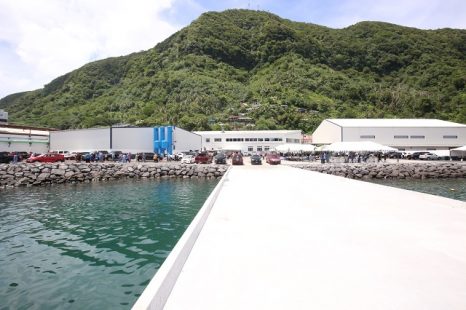 Fluctuating tuna prices, supply issues and other factors outside of the control of Tri Marine International led to the commercial demise of its $70 million cannery in American Samoa, the company said. The Oct. 13 announcement that the plant will cease canning operations as of Dec. 11 putting several hundred jobs in jeopardy came as a result of a series of factors, Bellevue, Washington-based Tri Marine said in a statement to Undercurrent News. “In truth, there were a number of factors outside of our control that influenced this difficult decision — the cost and abundance of tuna raw material in American Samoa, changes in free trade agreements, access to fishing grounds, the appeal of US-produced canned tuna in the market, market demand for higher quality sustainable and traceable tuna products, etc,” the company said. “To point to any one thing over another would miss the complexity of a challenging situation.” Read the story here 16:08
Fluctuating tuna prices, supply issues and other factors outside of the control of Tri Marine International led to the commercial demise of its $70 million cannery in American Samoa, the company said. The Oct. 13 announcement that the plant will cease canning operations as of Dec. 11 putting several hundred jobs in jeopardy came as a result of a series of factors, Bellevue, Washington-based Tri Marine said in a statement to Undercurrent News. “In truth, there were a number of factors outside of our control that influenced this difficult decision — the cost and abundance of tuna raw material in American Samoa, changes in free trade agreements, access to fishing grounds, the appeal of US-produced canned tuna in the market, market demand for higher quality sustainable and traceable tuna products, etc,” the company said. “To point to any one thing over another would miss the complexity of a challenging situation.” Read the story here 16:08

Tri Marine Group announces closure of Samoa Tuna Processors cannery December 11
Employees of Samoa Tuna Processors are learning that the cannery is shutting down indefinitely December 11 due to “adverse business conditions”. The $70 million cannery was officially opened in January of last year, but only started production a few months later because of delayed shipping due to industrial action on the west coast. The closure would put close to 1,000 workers out of jobs and send ripple effects throughout the community and also Samoa where the majority of production employees are from. Renato Curto, CEO of the Tri Marine Group said in a statement, “This is an incredibly difficult decision and one we make with a great deal of reluctance. “Our hearts go out to STP’s employees, suppliers, service providers and everyone else who depends on STP’s operations.” The statement said the challenging economics of canning tuna in American Samoa combined with external factors facing STP make Tri Marine’s private-label focused business model for operating the plant economically unsustainable in today’s market. Tri Marine is currently evaluating alternatives for the facility including outright sale, preferably to a strategic buyer that would minimize job losses. Read the rest here 17:04
Pacific Bluefin Tuna Heads Toward Protection
 Thirteen conservation groups and a former National Fisheries biologist petitioned for federal protection for Pacific bluefin tuna, and the marine agency agreed listing may be warranted. The National Marine Fisheries Service (NMFS) announced Tuesday that it will begin a 12-month status review of the iconic fish as the first step in the long process to secure Endangered Species Act protection for the overfished species. The Center for Biological Diversity, a frequent petitioner and litigator on behalf of imperiled species, was joined by Earthjustice, Defenders of Wildlife, WildEarth Guardians, Sierra Club, Turtle Island Restoration Network, the Ocean Foundation, Center for Food Safety, Greenpeace, Mission Blue, Recirculating Farms Coalition, The Safina Center, SandyHook SeaLife Foundation, and Jim Chambers, a retired NMFS biologist, owner of Prime Seafood sustainable seafood restaurant supply company and member of the Seafood Choices Alliance. Read the rest here 08:42
Thirteen conservation groups and a former National Fisheries biologist petitioned for federal protection for Pacific bluefin tuna, and the marine agency agreed listing may be warranted. The National Marine Fisheries Service (NMFS) announced Tuesday that it will begin a 12-month status review of the iconic fish as the first step in the long process to secure Endangered Species Act protection for the overfished species. The Center for Biological Diversity, a frequent petitioner and litigator on behalf of imperiled species, was joined by Earthjustice, Defenders of Wildlife, WildEarth Guardians, Sierra Club, Turtle Island Restoration Network, the Ocean Foundation, Center for Food Safety, Greenpeace, Mission Blue, Recirculating Farms Coalition, The Safina Center, SandyHook SeaLife Foundation, and Jim Chambers, a retired NMFS biologist, owner of Prime Seafood sustainable seafood restaurant supply company and member of the Seafood Choices Alliance. Read the rest here 08:42
WWF calls for shut down of commercial fishing to save Pacific bluefin tuna
 World Wildlife Fund (WWF) has called for the suspension of commercial fishing to save Pacific bluefin tuna because of the inaction of responsible agencies in addressing the decrease in stock. WWF Oceans and Seafood group leader Dr Aiko Yamauchi said members of the Northern Committee (NC) of the Western and Central Pacific Fisheries Commission (WCPFC) have failed to agree to an urgently-needed recovery plan to save Pacific bluefin tuna. WCPFC was established by the Convention for the conservation and management of highly migratory fish stocks in the Western and Central Pacific Ocean “Because of the lack of progress and the repeated inaction of the responsible bodies, the Pacific bluefin stock will continue to teeter on the edge of collapse,” Dr Yamauchi said. “We call for a full suspension of commercial fishing of this species until a Pacific-wide rebuilding and management plan has been agreed. Link 14:35
World Wildlife Fund (WWF) has called for the suspension of commercial fishing to save Pacific bluefin tuna because of the inaction of responsible agencies in addressing the decrease in stock. WWF Oceans and Seafood group leader Dr Aiko Yamauchi said members of the Northern Committee (NC) of the Western and Central Pacific Fisheries Commission (WCPFC) have failed to agree to an urgently-needed recovery plan to save Pacific bluefin tuna. WCPFC was established by the Convention for the conservation and management of highly migratory fish stocks in the Western and Central Pacific Ocean “Because of the lack of progress and the repeated inaction of the responsible bodies, the Pacific bluefin stock will continue to teeter on the edge of collapse,” Dr Yamauchi said. “We call for a full suspension of commercial fishing of this species until a Pacific-wide rebuilding and management plan has been agreed. Link 14:35
Fishing Industry faces tough times – Sam Parisi
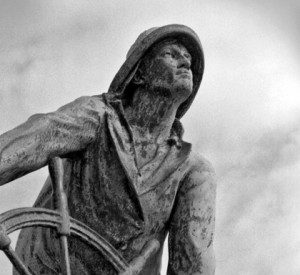 US Fishermen from all over are feeling the effects of NOAA and conservation groups that are making it very difficult for our fishing fleets on every coast. Every day there is anther obstacle for our fishermen, the most recent on the East Coast. President Obama has designated a large area of Cape Cod, the Northeast Canyons and Seamounts Marine National Monument. I fished those waters back in the late 60,s for whiting and lobster. Fishermen depend on those deep waters for lobsters. Although the President, after up roars from the lobstermen, has given them seven years to vacate, in the end those lobstermen will lose their rich grounds. When does it end? Every day some one else comes up with a brain storm and there are so many people out there that no idea of the effect, but think it is a good idea to protect whatever, not thinking of the harm to our fishermen. I believe the deck is stacked and our fishermen do not stand a chance to exist. We need help from our political leaders. I have heard over and over “we will help”, with good intentions but the fact remains NOAA holds all the cards. We have no say. We need political leader’s that will stand up to NOAA on our behalf, and follow through. We need help now. Here are the basic problems that need attention. Language written into MSA that would unlock the ironclad grip NOAA has on the “best available science” and accept other independent scientific data. SK Grant money needs to be removed from NOAA. Senator Sullivan of Alaska has such a bill pending and finally our fishermen should not have to pay for monitoring that is NOAA’s responsibility. Thanks for listing. Sam Parisi, Proud to be a fishermen. 19:24
US Fishermen from all over are feeling the effects of NOAA and conservation groups that are making it very difficult for our fishing fleets on every coast. Every day there is anther obstacle for our fishermen, the most recent on the East Coast. President Obama has designated a large area of Cape Cod, the Northeast Canyons and Seamounts Marine National Monument. I fished those waters back in the late 60,s for whiting and lobster. Fishermen depend on those deep waters for lobsters. Although the President, after up roars from the lobstermen, has given them seven years to vacate, in the end those lobstermen will lose their rich grounds. When does it end? Every day some one else comes up with a brain storm and there are so many people out there that no idea of the effect, but think it is a good idea to protect whatever, not thinking of the harm to our fishermen. I believe the deck is stacked and our fishermen do not stand a chance to exist. We need help from our political leaders. I have heard over and over “we will help”, with good intentions but the fact remains NOAA holds all the cards. We have no say. We need political leader’s that will stand up to NOAA on our behalf, and follow through. We need help now. Here are the basic problems that need attention. Language written into MSA that would unlock the ironclad grip NOAA has on the “best available science” and accept other independent scientific data. SK Grant money needs to be removed from NOAA. Senator Sullivan of Alaska has such a bill pending and finally our fishermen should not have to pay for monitoring that is NOAA’s responsibility. Thanks for listing. Sam Parisi, Proud to be a fishermen. 19:24
Obama’s new ocean preserves are bad for the environment and for people
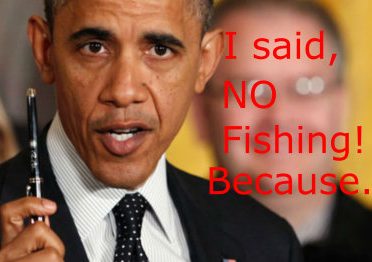 Who wants to save the oceans? Short answer: everyone, especially politicians. A less frequently asked question is whether their high-profile efforts always work. Right now, world leaders seem to want to see who can declare the biggest marine protected areas, or MPAs, in their territory. MPAs are kinds of national parks for sea life that extends from ocean surface to ocean floor. Commercial fishing and other undersea ventures are banned in them. They are popping up everywhere. In August, President Obama announced one in the western Pacific Ocean that is 50 per cent bigger than Texas. In September he created another, more modest one off the coast of New England. Britain announced yet another MPA in September around St. Helena Island in the south Pacific. It is half the size of the Lone Star State. In fact, the MPA movement has become a religion with accepted articles of faith that more and bigger are better. This current obsession is bad for the oceans, bad for the global environment, and bad for people. Consider what the imposition of an MPA can do to the economy and livelihood of local fishers, who are unable to easily pick up and move elsewhere. Some fishermen in New England are warning that they could go out of business as a result of the new Atlantic marine preserve. Read the op-ed here 10:48
Who wants to save the oceans? Short answer: everyone, especially politicians. A less frequently asked question is whether their high-profile efforts always work. Right now, world leaders seem to want to see who can declare the biggest marine protected areas, or MPAs, in their territory. MPAs are kinds of national parks for sea life that extends from ocean surface to ocean floor. Commercial fishing and other undersea ventures are banned in them. They are popping up everywhere. In August, President Obama announced one in the western Pacific Ocean that is 50 per cent bigger than Texas. In September he created another, more modest one off the coast of New England. Britain announced yet another MPA in September around St. Helena Island in the south Pacific. It is half the size of the Lone Star State. In fact, the MPA movement has become a religion with accepted articles of faith that more and bigger are better. This current obsession is bad for the oceans, bad for the global environment, and bad for people. Consider what the imposition of an MPA can do to the economy and livelihood of local fishers, who are unable to easily pick up and move elsewhere. Some fishermen in New England are warning that they could go out of business as a result of the new Atlantic marine preserve. Read the op-ed here 10:48






